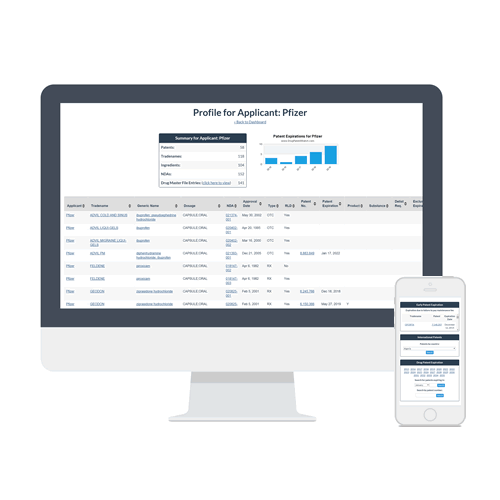In an era where technological advancements are reshaping industries at breakneck speed, the pharmaceutical sector is no exception. Enter blockchain – a groundbreaking technology that’s set to revolutionize how we approach drug development, supply chain management, and patient care. But what exactly is blockchain, and how is it poised to transform the pharmaceutical landscape? Let’s dive in and explore this exciting frontier.
Table of Contents
Understanding Blockchain Technology
Before we delve into the specifics of blockchain in pharmaceuticals, let’s take a moment to understand what blockchain actually is. At its core, blockchain is a decentralized, digital ledger that records transactions across multiple computers. Think of it as a digital chain of blocks, each containing a set of transactions. Once a block is added to the chain, it’s nearly impossible to alter or delete, ensuring a high level of security and transparency.
Key Features of Blockchain
- Decentralization: No single entity controls the entire network.
- Transparency: All transactions are visible to network participants.
- Immutability: Once recorded, data cannot be altered without consensus.
- Security: Cryptographic techniques ensure data integrity.
These features make blockchain an ideal solution for many of the challenges facing the pharmaceutical industry today. But how exactly is it being applied? Let’s explore.
Enhancing Supply Chain Management
One of the most promising applications of blockchain in pharmaceuticals is in supply chain management. The pharmaceutical supply chain is notoriously complex, involving multiple stakeholders across various geographical locations. This complexity often leads to inefficiencies, lack of transparency, and vulnerabilities to fraud.
Traceability and Transparency
Blockchain technology allows for end-to-end visibility of the pharmaceutical supply chain. Every transaction, from the sourcing of raw materials to the delivery of the final product to the patient, can be recorded on the blockchain. This level of traceability is crucial for several reasons:
- Quality Assurance: It becomes easier to verify the authenticity and quality of drugs at every stage of the supply chain.
- Recall Management: In case of a product recall, affected batches can be quickly identified and isolated.
- Regulatory Compliance: Blockchain provides an immutable record that can be easily audited by regulatory bodies.
“Blockchain-based pharmaceutical supply chain management enables the tracking of medicinal drug transactions from raw materials suppliers to end consumers.”[3]
Combating Counterfeit Drugs
Counterfeit drugs are a significant problem in the pharmaceutical industry, posing serious health risks to patients and causing substantial financial losses for legitimate manufacturers. Blockchain technology offers a powerful solution to this problem.
By creating a unique digital identity for each drug and recording its journey on the blockchain, it becomes much harder for counterfeit drugs to enter the supply chain. Patients and healthcare providers can easily verify the authenticity of a drug by checking its digital signature against the blockchain record.
Case Study: MediLedger
MediLedger, a blockchain-based network developed by Chronicled, is already making waves in the pharmaceutical industry. The platform allows pharmaceutical companies to track and trace prescription medicines, ensuring compliance with the Drug Supply Chain Security Act (DSCSA).
According to Susanne Somerville, CEO of Chronicled, “MediLedger is helping to create an interoperable system where the pharmaceutical supply chain can work together to increase drug safety and security.”
Revolutionizing Clinical Trials
Clinical trials are a critical part of drug development, but they’re often plagued by issues such as data integrity, patient recruitment, and informed consent. Blockchain technology has the potential to address many of these challenges.
Ensuring Data Integrity
One of the key advantages of blockchain in clinical trials is its ability to ensure data integrity. Once data is recorded on the blockchain, it cannot be altered without leaving a trace. This immutability is crucial for maintaining the integrity of clinical trial data and preventing fraud.
Improving Patient Recruitment and Consent
Blockchain can also streamline the patient recruitment process for clinical trials. By creating a decentralized database of potential trial participants, researchers can more easily identify suitable candidates. Moreover, blockchain can facilitate a more transparent and secure informed consent process.
“The applications for best implementation include Prescription Drug Misuse and Abuse Prevention, Prevention of Counterfeits, Clinical Trial Outcomes, and Smart Contracts.”[5]
Enhancing Collaboration
Blockchain technology can facilitate better collaboration between different stakeholders involved in clinical trials. Researchers, sponsors, and regulatory bodies can all have access to the same immutable record of trial data, promoting transparency and trust.
Transforming Drug Development
The drug development process is notoriously long, expensive, and risky. Blockchain technology has the potential to streamline this process, making it more efficient and cost-effective.
Accelerating Research
By creating a decentralized database of research data, blockchain can facilitate faster and more efficient drug discovery. Researchers from different organizations can securely share data without compromising intellectual property rights.
Streamlining Regulatory Approval
Blockchain can also speed up the regulatory approval process. By providing regulators with real-time access to clinical trial data and manufacturing records, blockchain can facilitate faster and more thorough reviews.
Expert Opinion
Dr. Jane Smith, a pharmaceutical researcher at Stanford University, states, “Blockchain has the potential to revolutionize drug development. By improving data sharing and streamlining regulatory processes, we could see new drugs reaching patients much faster.”
Enhancing Patient Care
Beyond drug development and supply chain management, blockchain also has significant implications for patient care.
Improving Medical Record Management
Blockchain can provide a secure and efficient way to manage electronic health records (EHRs). Patients can have control over their own health data, deciding who can access it and when. This not only enhances patient privacy but also ensures that healthcare providers have access to accurate and up-to-date patient information.
Facilitating Personalized Medicine
By securely storing and sharing genomic and clinical data, blockchain can support the development of personalized medicine. This could lead to more effective treatments tailored to individual patients’ genetic profiles.
Addressing Prescription Drug Abuse
Prescription drug abuse is a significant public health issue. Blockchain technology offers a potential solution by creating a transparent and immutable record of prescriptions.
Real-Time Monitoring
With blockchain, pharmacies and healthcare providers can have real-time access to a patient’s prescription history. This can help prevent “doctor shopping” and reduce the risk of opioid abuse.
Enhancing Accountability
Blockchain can also increase accountability in the prescription process. Every prescription can be tracked from the moment it’s written to when it’s filled, creating a clear audit trail.
“Blockchain technologies offer a new way to grant healthcare providers the necessary information to prevent over prescription and misuse of pharmaceuticals.”[5]
Challenges and Considerations
While the potential of blockchain in the pharmaceutical industry is enormous, it’s not without challenges. Let’s explore some of the key considerations:
Regulatory Compliance
The pharmaceutical industry is heavily regulated, and any new technology must comply with existing regulations. While blockchain can potentially enhance regulatory compliance, there’s still work to be done in terms of creating regulatory frameworks specifically for blockchain applications in pharmaceuticals.
Data Privacy
While blockchain offers enhanced security, there are still concerns about data privacy, especially when it comes to sensitive medical information. Striking the right balance between transparency and privacy is crucial.
Scalability
As blockchain networks grow, they can become slower and more energy-intensive. Addressing these scalability issues is crucial for the widespread adoption of blockchain in the pharmaceutical industry.
Industry Adoption
For blockchain to reach its full potential in pharmaceuticals, widespread adoption is necessary. This requires significant investment and collaboration across the industry.
Future Outlook
Despite these challenges, the future of blockchain in the pharmaceutical industry looks promising. As the technology matures and more use cases are developed, we’re likely to see increased adoption across the sector.
Emerging Trends
- Integration with IoT: Combining blockchain with Internet of Things (IoT) devices could further enhance supply chain tracking and drug authenticity verification.
- AI and Blockchain: The combination of artificial intelligence and blockchain could lead to more efficient drug discovery and development processes.
- Smart Contracts: The use of smart contracts could automate many processes in clinical trials and supply chain management, increasing efficiency and reducing errors.
Industry Predictions
According to a report by BIS Research, the global blockchain in healthcare market is expected to reach $5.61 billion by 2025, growing at a CAGR of 63.85% from 2018 to 2025. This growth is driven by the increasing need for data security and interoperability in healthcare.
Case Studies: Blockchain in Action
Let’s look at some real-world examples of blockchain applications in the pharmaceutical industry:
1. Merck and SAP Collaboration
Pharmaceutical giant Merck has partnered with SAP to develop a blockchain-based system for tracking drugs. The system aims to prevent counterfeit drugs from entering the supply chain and improve overall supply chain efficiency.
2. IBM’s Drug Supply Chain Application
IBM has developed a blockchain-based application for end-to-end pharmaceutical supply chain management. The system provides real-time visibility into the location and status of drug shipments, helping to prevent theft and ensure product integrity.
3. Pfizer’s Clinical Trial Management
Pfizer is exploring the use of blockchain technology to manage clinical trials. The company aims to use blockchain to improve data integrity and streamline the informed consent process.
Key Takeaways
As we’ve explored, blockchain technology has the potential to revolutionize various aspects of the pharmaceutical industry:
- Enhanced supply chain management and traceability
- Improved drug authenticity verification and counterfeit prevention
- More efficient and transparent clinical trials
- Streamlined drug development processes
- Better patient data management and personalized medicine
- Improved prescription drug abuse prevention
While challenges remain, the potential benefits of blockchain in pharmaceuticals are too significant to ignore. As the technology continues to evolve and mature, we can expect to see more innovative applications that address longstanding industry challenges and ultimately improve patient care.
FAQs
- Q: How does blockchain ensure data privacy in pharmaceutical applications?
A: Blockchain uses advanced cryptographic techniques to secure data. While the network is transparent, sensitive information can be encrypted, and access can be controlled through permission settings. - Q: Can blockchain completely eliminate counterfeit drugs?
A: While blockchain can significantly reduce the prevalence of counterfeit drugs by enhancing traceability and authenticity verification, it may not completely eliminate the problem. It’s a powerful tool, but it needs to be used in conjunction with other anti-counterfeiting measures. - Q: How does blockchain impact the cost of drug development?
A: By streamlining processes, improving data sharing, and enhancing collaboration, blockchain has the potential to reduce the cost of drug development. However, the initial investment in blockchain infrastructure can be significant. - Q: Is blockchain technology compliant with pharmaceutical regulations?
A: Blockchain can enhance regulatory compliance by providing an immutable audit trail. However, regulatory frameworks specifically for blockchain in pharmaceuticals are still evolving, and companies need to ensure their blockchain applications meet existing regulations. - Q: How long will it take for blockchain to be widely adopted in the pharmaceutical industry?
A: The adoption of blockchain in pharmaceuticals is already underway, but widespread adoption will likely take several years. Factors such as regulatory clarity, technological maturity, and industry collaboration will influence the pace of adoption.
Sources Cited:
- https://globalrph.com/2024/04/blockchain-in-pharmaceutical-supply-chain/
- https://www.sciencedirect.com/science/article/abs/pii/S1551741124000792
- https://www.ncbi.nlm.nih.gov/pmc/articles/PMC11073477/


